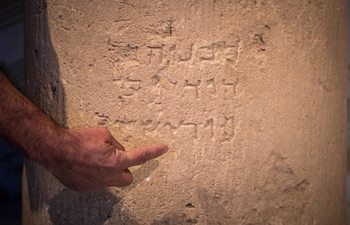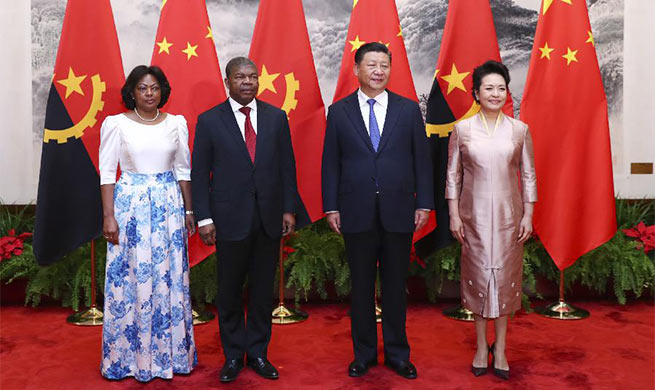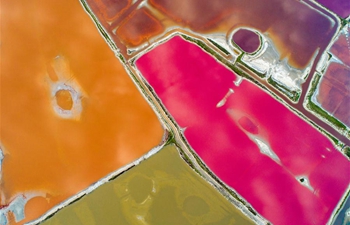MEXICO CITY, Oct. 9 (Xinhua) -- Mexico's state-run Petroleos Mexicanos (Pemex) on Tuesday announced the discovery of seven new oil reserves in the shallow waters of the Gulf of Mexico with a potential of adding 180 million barrels of crude to the country's reserves.
The discoveries are among the 10 most important in the world in the past 15 years, the country's Energy Minister Pedro Joaquin Coldwell said at a press conference.
Carlos Trevino, Pemex general director, who announced the discovery at the event, attributed the discovery to "a budgetary focus on areas with greater prospects within Pemex."
It shows that "we still have a lot of crude oil and we should look for it, find it and pump it in order to add it to the national production," said Trevino.
The two discovered fields are divided into seven reserves, Trevino said.
The first is Manik field with two reserves which could yield 80 million barrels, and is located 102 km from Ciudad del Carmen of southern Campeche State. It was discovered in April at a depth of 4,765 meters, added Trevino.
The other field, known as Mulach field, has five reserves with a potential of 100 million barrels. It is located 17 km from Paraiso of southern Tabasco State at a depth of 3,976 meters, he said.
According to Trevino, the two fields could produce as many as 45,000 barrels of oil daily beginning in the fourth quarter of 2020.
The news is buoyed by the recovery in the international price of crude, Coldwell said. In the case of the Mexican mix, the price for a barrel of crude was above 70 U.S. dollars in September.
The announcement of the discovery came days after Pemex and the U.S. oil company Talos Energy, signed a preliminary unification agreement between the oil fields Amoca-Yaxche-03 and bloc 7, located in the shallow waters of the Gulf of Mexico.
The discovery comes nearly two months before President Enrique Pena Nieto leaves office. His government pushed forward energy reform allowing for the participation of the private sector.
However, that is likely to change as his successor President-elect Andres Manuel Lopez Obrador presented his own plan at the end of July to rescue Mexico's energy sector. The incoming president made clear that he does not support the participation of private investors in the sector.
Among the major moves listed in the plan, the new government is to first promote a program to invest 75 billion pesos (3.934 billion U.S. dollars) to drill new oil wells, and increase the production from 1.9 million barrels daily to 2.5 million barrels per day within two years.

















